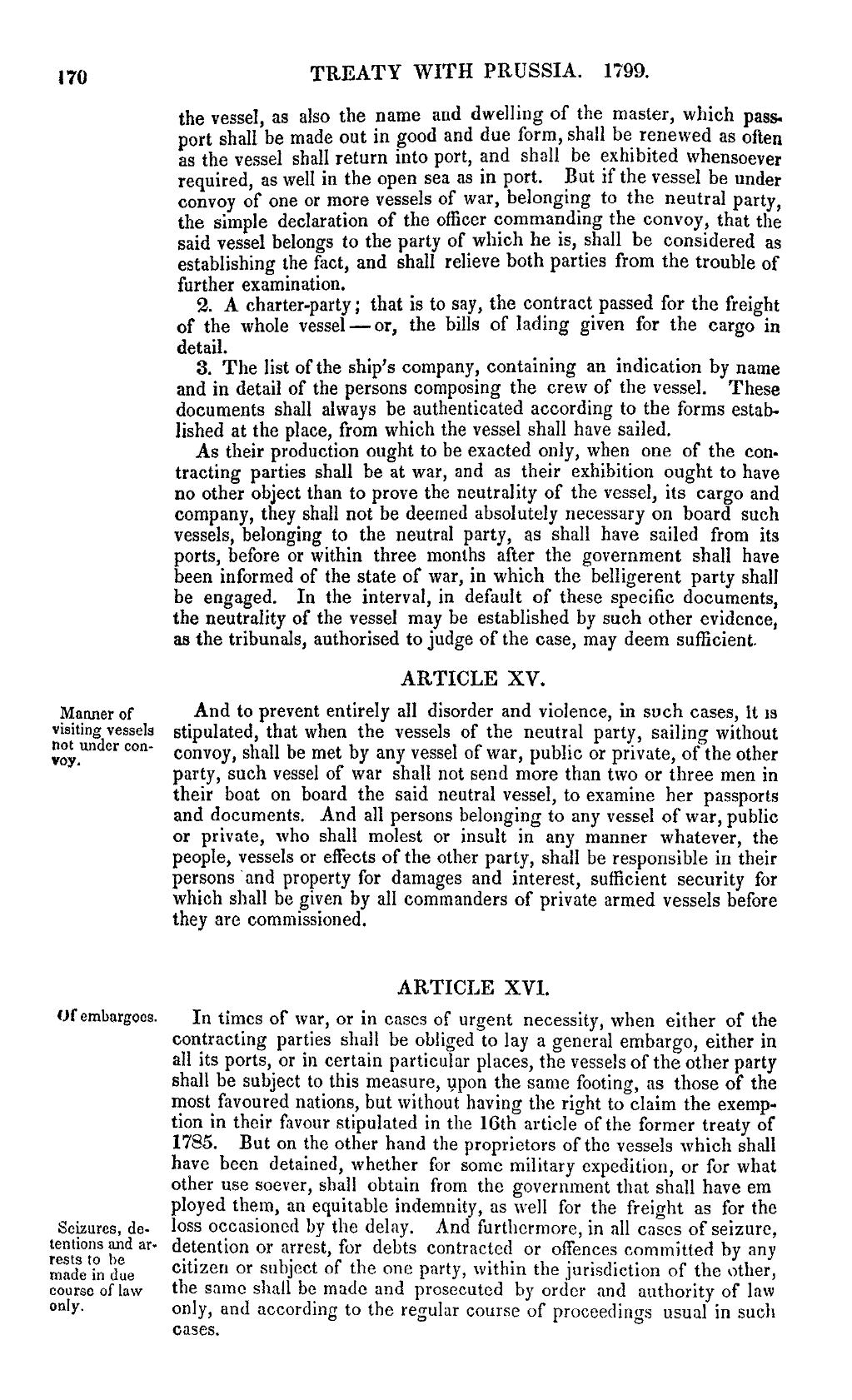|7() TREATY WITH PRUSSIA. 1799. the vessel, as also the name and dwelling of the master, which passport shall be made out in good and due form, shall be renewed as often as the vessel shall return into port, and shall be exhibited whensoever required, as well in the open sea as in port. but if the vessel be under convoy of one or more vessels of war, belonging to the neutral party, the simple declaration of the officer commanding the convoy, that the said vessel belongs to the party of which he is, shall be considered as establishing the fact, and shall relieve both parties from the trouble of further examination. 2. A charter-party; that is to say, the contract passed for the freight of the whole vessel-—or, the bills of lading given for the cargo in detail. 3. The list of the ship’s company, containing an indication by name and in detail of the persons composing the crew of the vessel. These documents shall always be authenticated according to the forms established at the place, from which the vessel shall have sailed. As their production ought to be exacted only, when one of the contracting parties shall be at war, and as their exhibition ought to have no other object than to prove the neutrality of the vessel, its cargo and company, they shall not be deemed absolutely necessary on board such vessels, belonging to the neutral party, as shall have sailed from its ports, before or within three months after the government shall have been informed of the state of war, in which the belligerent party shall be engaged. In the interval, in default of these specific documents, the neutrality of the vessel may be established by such other evidence, as the tribunals, authorised to judge of the case, may deem sufficient. ARTICLE XV. Mmm .,5 And to prevent entirely all disorder and violence, in such cases, it is Visiting V¢SS€l¤ stipulated, that when the vessels of the neutral party, sailing without $g;,““d°' °°“‘ convoy, shall be met by any vessel of war, public or private, of the other party, such vessel of war shall not send more than two or three men in their boat on board the said neutral vessel, to examine her passports and documents. And all persons belonging to any vessel of war, public or private, who shall molest or insult in any manner whatever, the people, vessels or effects of the other party, shall be responsible in their persons and property for damages and interest, sufficient security for which shall be given by all commanders of private armed vessels before they are commissioned. ARTICLE XVI. UY6mb¤rg<>¤¤· In times of war, or in cases of urgent necessity, when either of the contracting parties shall be obliged to lay a general embargo, either in all its ports, or in certain particular places, the vessels of the other party shall be subject to this measure, upon the same footing, as those of the most favoured nations, but without having the right to claim the exemption in their favour stipulated in the 16th article of the former treaty of 1785. But on the other hand the proprietors of the vessels which shall have been detained, whether for some military expedition, or for what other use soever, shall obtain from the government that shall have em ployed them, an equitable indemnity, as well for the freight as for the sctzums, dc. loss occasioned by the delay. And furthermore, in all cases of seizure, yiiggvf md at- detention or arrest, for debts contracted or offences committed by any made in due citizen or subject of the one party, within the jurisdiction of the other, couysc Ori,,,,, the same shall be made and prosecuted by order and authority of law ¤¤lY· only, and according to the regular course of proceedings usual in such cases.
